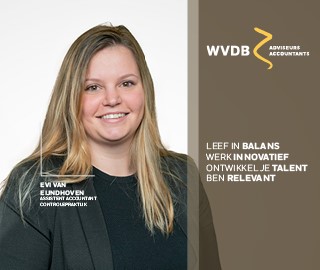For the Dutch version, click here
The study Business Administration introduces you to many different facets of a business. The four pillars that the study mainly focuses on are accounting, finance, marketing, and management. However, this wide range of subjects can also result in students not seeing the wood for the trees anymore, as most of the time, not all the courses spark their interest. To prevent this, Tilburg University allows students to choose their own courses during their minor, in a direction that interests the student the most. This article explains the rationale behind students’ choices for both the Accountancy minor and the Finance minor at Tilburg University.
Various options
In the first semester of year 3, business economics and IBA students have various ways to fill their first term. You can go on exchange abroad to a partner university, do an internship or take a minor at Tilburg University. All these options have their own added value. In exchange, you develop certain independence and learn to cope in an unfamiliar, international environment. If you are curious about the business world and want to gain your first experience here early on, an internship may be the perfect opportunity for you. If these options do not appeal to you, there is the option of taking a minor at Tilburg University to complete several courses of your choice. For both Accountancy and Finance, the university has compiled a minor that focuses on one of these subjects. If a student is interested in more than one of these subjects, they can also choose to compose the minor themselves.
Minor in Accounting
The minor in accounting focuses on the “language of business”, the financial audit, and management accounting. During this minor, students take three courses: Auditing & Accounting Information Systems, Intermediate Financial Accounting, Intermediate Management Accounting.
Bo Janssen chose this minor during her third year as a Business Administration student: “I always found the accounting-related courses given during the bachelor’s degree interesting and was curious whether I might want to do something with this later on.” According to Bo, the subjects that came along with this did make the field of Accountancy a bit clearer: “The minor consisted of three subjects, each covering a different topic within Accountancy. You get, just a bit more detailed than in the rest of the bachelor, a picture of what Accountancy is really about.”However, according to Bo, there were also some disadvantages about the minor: “I did find it difficult to judge from the theory of the minor alone whether I would actually like the profession of accountancy. Therefore, I think it’s good to discover what the field of Accountancy looks like in practice, to really experience where you could end up.” In addition to the three Accountancy courses, the minor does require the completion of the required 30 credits, which means choosing at least two additional courses. Bo did this with an eye to the future: “Because I was thinking of taking the master’s in Accountancy after my bachelor’s, I chose to take two deficiency courses in addition to the required minor courses. You have to pass these deficiency courses before you start the postmaster. That way I didn’t have to take them into account later in my studies.”
Meanwhile, Bo has started the master Accountancy: “Now that I have started my master Accountancy, I notice that I encounter several things that I recognize from the Minor. Although you certainly don’t need the minor courses as a building block for the master, it is nice to see different concepts from the minor come back and be dealt with more extensively this time.”
Minor in Finance
The Finance minor dives deeper into the content of the courses Finance 1 and 2 of the IBA and Business Economics bachelor’s degree. The focus is on investments as well as valuing and assessing financial decision-making. Anne Kemps and Sjors Seinen both chose to follow this minor. Anne was mainly triggered by her interest in previous courses in the bachelor: “During the first two years, Finance interested me the most, but because the economical scope of the bachelor is very wide, I could only follow a few Finance courses. Therefore, I chose to follow courses from the minor in Finance so that I could get a better understanding of this subject, as this would enable me to decide whether I wanted to delve deeper into this field during my master’s.”
The Finance minor also consists of three courses: Financial History and Intermediation, Financial Management, and Risk Management. Sjors was able to confirm his interest in Finance while following these courses: “Whereas Financial History and Intermediation was primarily focused on theory, the other two courses directed a great deal of attention to practical applications. After covering the basic concepts comprehensively during the first few weeks, I started to connect underlying principles and better understand financial markets than beforehand. As we dove deeper into the course material, I became increasingly interested: concepts such as asset-pricing models and derivatives motivated me to go beyond the teaching materials to find out more, which is something I had never done before. This spike in interest, primarily fuelled by Finance minor curriculum, led me to believe that Finance is my passion.”
As for Anne, her interest in Finance was also confirmed, resulting in her choice to start the Master Finance: “In the Master Finance I now notice that the same topics are brought up again. You are not expected to know the subjects from the minor, nor are they specified as required subjects. It is therefore not necessary to take the minor if you want to start the master, but it already gives you a lot of insights into the subjects that will also be dealt with in the master.”
All in all, as a business economics student in year three, you are given multiple options for the first semester. Besides broadening your horizons abroad or doing an internship at a company to gain practical experience, you can also decide to dive deeper into a field of your interest at Tilburg University. A decision that will most likely provide you with more clarity in the direction within business economics you want to pursue in the future.

















